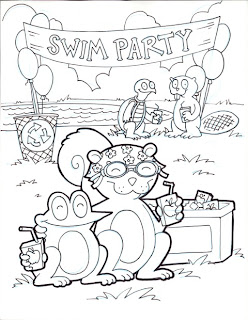Anyone with an active imagination and the willingness to suspend disbelief for a few minutes will quickly discover what puppeteers have known for centuries: the artful use of puppets can be a powerful tool.
Some people think that because I often include puppets in my work, my performances are only for kids. This is far from the truth, but because most of us associate puppets with childhood it is easy to draw this conclusion. The fact is that people of all ages and from every walk in life enjoy watching a bit of good puppetry once in a while. I have discovered there is magic in the way a puppet can entertain and engage children and adults during a performance.
A puppet has the ability to grab attention and get an audience to listen and understand concepts deeply without seeming to do so. A puppet is able to provide instruction in an off-handed, yet interesting way. For example, when a parent reminds a child to “look both ways before crossing the street,” the kid is often miles ahead in thought - he has heard this one before. But during a show, when a puppet asks the kids why he always has to look both ways every time he wants to cross the street, youngsters in the audience are eager to speak up and provide reasons why it is important to be cautious. This interaction – the ability to teach a little puppet something – gets the kids to own the information they have just shared. On the surface, not too impressive, but at a deeper level this interaction has a lasting effect.
 Including a puppet in every show is not always appropriate, but there are times when a puppet segment can be an excellent addition. I have found that a puppet is a great attention-getting device, particularly for those little ones sitting down in front. When used properly, a puppet adds extra energy to an ordinary performance. In a storytelling show, puppets are not too common, so a short visit by a puppet at the start and again at the end of the show ties things up nicely.
Including a puppet in every show is not always appropriate, but there are times when a puppet segment can be an excellent addition. I have found that a puppet is a great attention-getting device, particularly for those little ones sitting down in front. When used properly, a puppet adds extra energy to an ordinary performance. In a storytelling show, puppets are not too common, so a short visit by a puppet at the start and again at the end of the show ties things up nicely. I recently produced two short puppet videos to share what I've learned about the use of a simple "lap puppet." This type of puppetry does not require a puppet stage; it is a technique where the performer brings out a puppet friend in full view of the audience. My videos offer some audience-tested ideas on how to use, teach, entertain, interact and have fun when you include a puppet in your communication tool kit. As time goes on, I plan to produce more of these segments. I hope you will be inspired and use these ideas as a springboard to create and develop your own unique puppet style.
To view the first two videos, simply click here to see how to make a magic puppet. Click here to view the segment with my favorite coyote puppet friend, Clyde.
If you'd like to know when the next
puppet videos are released, be sure to visit my website or join me on Twitter
or Facebook.
If you have questions about puppetry, just write me a note in the comment section below, and I will get back to you right away. I am always happy to share what I know about puppetry and the art of storytelling.
Thanks for your interest. (I’d love it if you become a subscriber to this blog.)
Thanks for your interest. (I’d love it if you become a subscriber to this blog.)
























